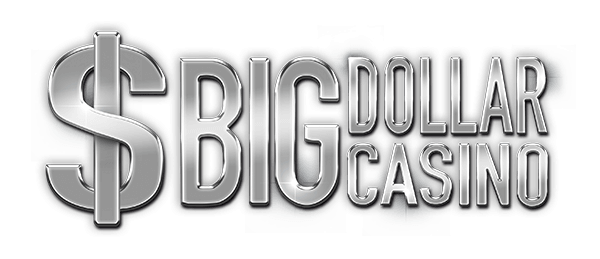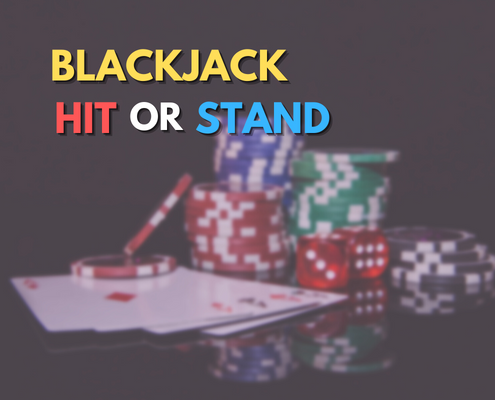Blackjack Hit or Stand? Examining Strategies That Could Make or Break Your Game
Mastering the Essential Blackjack Hit or Stand Rules
Online casino players have the freedom to make their own decisions, but the dealer’s actions are governed by the casino’s rules. The particular rules in place may vary depending on the location of play, but you can trust us to provide you with comprehensive guidance on the most commonly observed guidelines across the globe and at the top online blackjack for real money casinos.
Player rules:
- The goal of Blackjack is to beat the dealer’s hand without going over 21.
- Each player is dealt two cards, and can choose to hit (get another card) or stand (keep their current hand).
- Face cards (Jacks, Queens, and Kings) are worth 10 points, and Aces can be worth either 1 or 11 points.
- If a player’s hand exceeds 21 points, they automatically lose (known as “busting”).
- If a player’s hand is closer to 21 than the dealer’s hand, without going over, they win.
- If a player’s hand ties with the dealer’s hand, it is a “push” and the player neither wins nor loses.
- Players can also choose to split their hand if they have two of the same card, and play each card as a separate hand.
- Doubling down is another option, where a player can double their bet and receive only one more card.
Dealer rules:
- The Blackjack dealer’s main objective is to deal cards to players and to manage the game.
- In traditional Blackjack, the dealer must draw to 16 and stand on 17 or higher.
- If the dealer’s hand exceeds 21, they are considered “bust” and all players remaining in the game win.
- The dealer’s actions are determined by the game’s rules, and they cannot deviate from them.
- In some variants of Blackjack, the dealer may be allowed to hit on a soft 17 (a hand that includes an Ace and a six).
- The dealer must deal cards in a specific order, first to the player to their left and then around the table in a clockwise direction.
- Dealers must follow proper procedure, including announcing when the game is starting, collecting bets, and dealing cards.
- Dealers must be skilled at managing chips, making payouts, and resolving any disputes that may arise.
- Casinos usually train their dealers in-house, and dealers must maintain a professional appearance and demeanor.
Understanding the Difference Between Hard and Soft Hands
In blackjack, a hand is considered “hard” if it doesn’t have an ace, or if the ace has a value of 1. For example, a hand with a 9 and a 7 is a hard 16. On the other hand, a hand is considered “soft” if it has an ace that can be counted as either 1 or 11. For example, a hand with an ace and a 5 is a soft 16, because the ace can be counted as either 1 or 11, depending on the situation.
Hand Values and When to Hit
The objective of blackjack is to have a hand that’s worth more than the dealer’s hand, but without going over 21. Each card in the deck has a point value, and the values are as follows:
- Ace: 1 or 11
- Face cards (King, Queen, Jack): 10
- All other cards: Their face value (for example, a 4 is worth 4 points)
When you receive your first two cards, you’ll need to decide whether to “hit” (ask for another card) or “stand” (keep your current hand). The basic rule of thumb is to hit if your hand is 12 or less, and to stand if your hand is 17 or more. However, there are some exceptions to this rule:
- If you have a soft 17 (an ace and a 6), you should hit.
- If the dealer’s face-up card is 7 or higher, and you have a hard 12-16, you should hit.
- If the dealer’s face-up card is 6 or lower, and you have a hard 12-16, you should stand.
Common Blackjack Hit Strategies
There are a few common blackjack hit strategies that can help you maximize your winnings:
- Always hit a hard 8 or less.
- Always hit a hard 11 or less.
- Always hit a soft 17 or less.
- If the dealer’s face-up card is 7 or higher, hit until you have a hard 17 or better.
- If the dealer’s face-up card is 4, 5, or 6, and you have a hard 12 or higher, stand.
Common Strategies for Blackjack Hit or Stand
Players always have to decide whether to take another card (hit) or stick with their current hand (stand) based on the value of their cards and the dealer’s up card.
- Basic Strategy: This involves using a set of rules to determine the best move based on the player’s hand and the dealer’s up card. Basic strategy charts are widely available online and can help players make optimal decisions.
- Card Counting: This advanced strategy involves keeping track of the cards that have been dealt to determine the likelihood of certain cards being drawn. It requires a lot of practice and is often frowned upon by casinos.
- Progressive Betting: This strategy involves adjusting the size of bets based on the outcome of previous hands. For example, if a player wins a hand, they may increase their bet for the next hand.
- Side Bets: Some players like to place additional bets on outcomes like whether the dealer will bust or whether their hand will be a pair. While these can offer higher payouts, they are generally riskier bets.
- Mastering the Art of Splitting Aces in Blackjack: Whenever you are dealt a pair of aces or a pair of eights, always split them. Two eights give you a total of 16, which is the worst hand in blackjack. Splitting aces gives you the opportunity of hitting two naturals or drawing to a really great hand. Equally, never split two 10-point cards since you’re very unlikely to do better than a 20.
- Taking a Chance: If you want more money on the table when the odds are in your favor, then doubling down is very important. You should double-down when you have a total of 10 but never when the dealer has a 10 card or an ace. You should always double down when you have 11 and the dealer has anything but an ace.
When The Dealer Has A Strong Upcard
The standard strategy suggests that players stand when the dealer’s upcard is 2-6, and hit when it’s 7-Ace. But if the dealer’s upcard is a 10 or Ace, it may be worth deviating from this approach. In this case, the dealer has a higher chance of making a strong hand, and you may want to take more risks to improve your own hand.
As a blackjack player, you may have heard of the standard strategy – a set of guidelines that helps players decide when to hit, stand, double down, or split. It’s a reliable approach that has been tested and proven over the years, and it’s recommended that players follow it closely for the best chances of winning.
When to defer:
There are situations where deviating from the standard strategy may be necessary. Here are some examples of when you may want to consider making a different move than what the strategy dictates:
When Playing in a Tournaments
- Blackjack tournaments have different rules than regular games, and the standard strategy may not always apply. In a tournament, you’re not only playing against the dealer, but also against other players. In this case, you may want to deviate from the standard strategy to gain an edge over your opponents and stay in the game longer.
When Card Counting
- If you’re an experienced blackjack player, you may be familiar with card counting. This technique involves keeping track of the cards that have been played and using this information to make better decisions. When counting cards, you may want to deviate from the standard strategy to take advantage of the information you have gathered.
When Playing in Unusual Variants
- There are many variants of blackjack, and some have different rules than the standard game. In these cases, the standard strategy may not be effective, and you may need to come up with a new approach. For example, in Double Exposure Blackjack, where both of the dealer’s cards are exposed, the standard strategy doesn’t work as well.
Beating the Odds: Understanding Blackjack House Edge
Every casino game has a statistical advantage built into the rules, known as the house edge. However, in blackjack, players can use strategy to reduce the house edge or even shift the odds in their favor, making it a popular game.
While the blackjack house edge cannot determine your individual session outcomes, the more you play, the closer your results will get to the statistical advantage. The crucial aspect to keep in mind is that your skill level in blackjack directly impacts the house edge.
In contrast to games like baccarat or roulette, blackjack does not have a fixed house edge due to the numerous strategy decisions players can make. Skilled players who play correctly can reduce the house edge to as low as half a percent, while beginners who do not utilize basic strategy will give the casino a higher advantage.
Unpacking the Emotional Triggers of the Game
In the game of blackjack, emotions can run high. It’s important to understand what triggers certain emotional responses in order to keep a level head at the table. One of the most common emotional triggers in online blackjack is the fear of losing money. This fear can cause players to make irrational decisions or become overly cautious, which can ultimately lead to losses.
Another trigger is the desire to win big, which can cause players to take unnecessary risks or become overly aggressive. Additionally, frustration can arise when luck is not on your side, leading to impulsive decisions or negative reactions towards other players or the dealer. By understanding these common emotional triggers, players can better manage their emotions and make rational decisions at the blackjack table.
Blackjack Bonanza: The Biggest Winners in The USA
Blackjack is one of the most popular casino games worldwide, and the USA is no exception. Every year, there are plenty of big blackjack winners who walk away with huge sums of money. In recent times, some of the biggest blackjack winners in the USA include Don Johnson, who won $15.1 million at Atlantic City’s Tropicana Casino, and James Grosjean, who won $9.2 million at Caesars Palace in Las Vegas.
Another notable winner is MIT student Jeff Ma, who won over $500,000 in one weekend of blackjack in Las Vegas. These impressive wins prove that blackjack can be a highly profitable game, provided you have the skills and luck to succeed.
Conclusion
In conclusion, while the standard strategy is an excellent guide for blackjack players, it’s not always a one-size-fits-all approach. There are situations where deviating from the strategy can be beneficial, and it’s up to the player to decide when to take the risk. As with any gambling game, it’s important to be aware of the risks and make informed decisions to increase your chances of winning.




